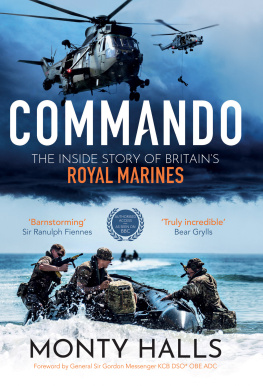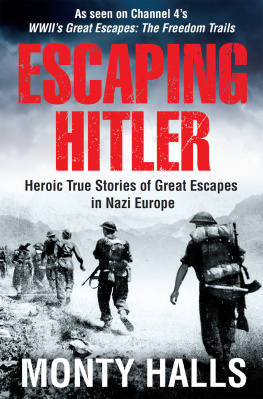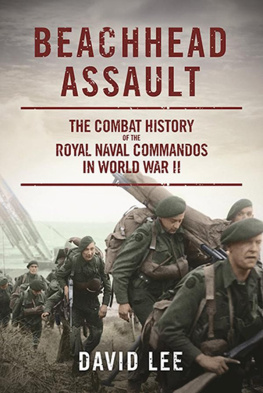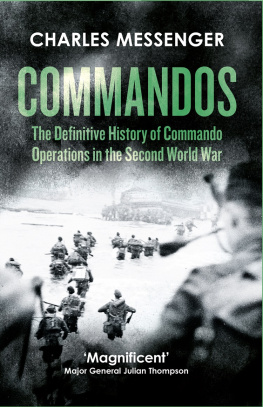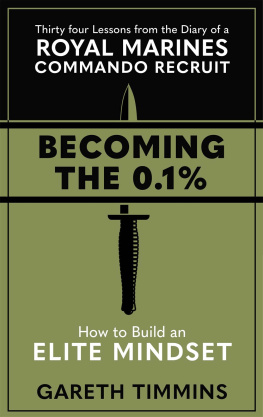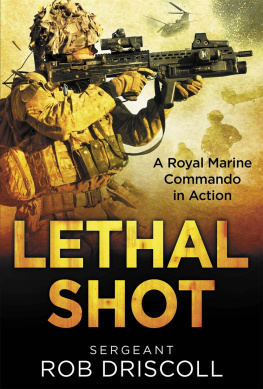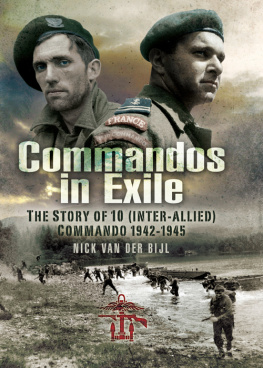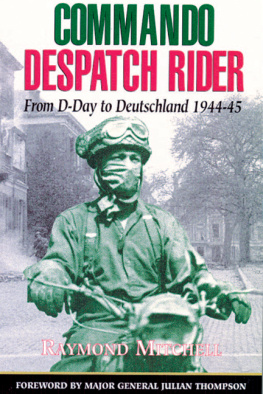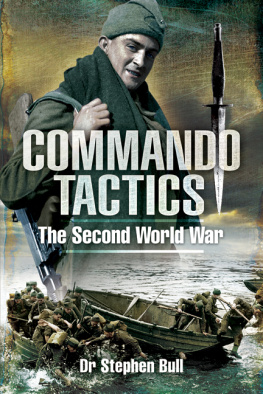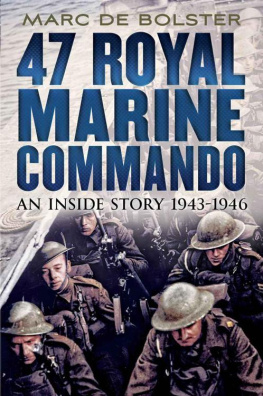
Monty Halls
COMMANDO
The Inside Story of Britains Royal Marines

Contents
About the Author
Monty Halls is a former Royal Marines Officer who served for over a decade. His subsequent career as an expedition leader, broadcaster and travel writer saw his travels continue around the world. He is based in South Devon, where he runs Seadog an adventure and wildlife production company. His ties to the Royal Marines remain as strong as ever, and he is a passionate supporter of the RM Charity in their efforts to raise funds for the veteran community. He is married to Tam and has two daughters Isla and Molly the latter being the only team hes worked with that continues to bamboozle him.
This book is dedicated to Wardy, Matt and Seb.
Warriors all.
See you at the FRV Royal
Foreword by General Sir Gordon Messenger
History is best brought to life when told by those involved. By bringing together the testimonies of those individuals who shaped a selection of momentous events in our recent history, Monty Halls has created a unique and timeless account of what it means to be a Royal Marine.
Now retired, I remain immensely proud of being part of family. My 36-year service is of course just a blip in our long and treasured heritage yet I, alongside so many others, will forever feel a strong connection and a sense of camaraderie with all those who have served under our banner. The Corps instils a unique sense of belonging, which extends beyond those serving and into our families, supporters and friends. Yes, its central identity is the Commando green beret, but the wider network of the Band Service, Royal Marines Reservists, Cadets, attached ranks, and our Charity and Association are all key components of the warm, self-supporting community that makes up the Royal Marines family. We are very fortunate to be part of it.
Such a bond does not occur by accident, but is the result of a common, core ethos that has been drilled into Royal Marines for generations. The Commando spirit has its roots in 1940s Achnacarry, but it resonates as strongly as ever amongst todays serving Marines just read Montys account of the aspiring recruits as they approach their commando tests. The green beret symbolises so much more than the mere passing of physical tests it tells you who you are, that you can be relied upon when chips are down, that you wont leave anyone behind, that you are capable of confronting and overcoming the hardest of challenges. The tales of incredible fortitude and courage in this book are just notable examples of the qualities that Royal Marines rightly take for granted. Simply put, we would expect nothing less. It all stems from training: when a teams minimum standards are so exacting, you know its limits and you can demand more from your team and yourself. As Julian Thompson reflects in the chapter on the Falklands conflict, you can only do difficult things with great people that you trust. And through an emphasis on teamwork over individuality.
Arrogance, selfishness and ego have no place in the Commando ethos. As I hope leaps out from every page, the exploits described are not considered by the individuals involved to be especially worthy or heroic. Indeed, the self-effacing narratives tell the tale of people who felt they were just doing their job on behalf of the mission and their mates, and that any Marine would do the same in the circumstances. I like to describe this characteristic as Understated Excellence; an insistence on delivering at the very height of ones ability, without feeling the need to shout about it. It is the collective Royal Marine trait of which Im most proud.
Exposure to risk, danger and hardship is rarely without impact, and the human cost of the Royal Marines operational tempo over recent decades is evident throughout this book. Proportionally, the Royal Marines have suffered more fatalities and life-changing injuries in recent deployments than any other cap-badge; the symptom of an instinctive willingness to confront the toughest of challenges, and a recognition that Commanders allocate their highest risk missions to their most capable units. We would not wish it any other way.
But nor can we duck the fact that the human cost is ongoing and will be with us for some time. As well as the enduring physical impact on those affected young, fit, proud members of the Royal Marines family, the invisible psychological burdens faced by so many continue to surface. The loss of our Commandant General to suicide is emblematic but by no means isolated. We rely upon our Royal Marines Charity to provide the timely, tailored, necessary support to those in need, and we rely upon our broader support community to ensure that they have the means to do so.
I suppose I should close by saying something nice about Montys book. Ive known him for many years, and lets just say that his ability to string a sentence together was never prominent on my list of his many qualities! Yet he always had an eye for deep-seated human qualities, regardless of background or status, and he is a master at bringing out the best of people. I truly believe he has done that with this book and associated TV series; occasionally uncomfortably dragging out the inner feelings of those involved in iconic moments yet, in so doing, perfectly capturing the of being a Royal Marine.
Introduction
Intuitively one might think this is a book about an organisation the clue is in the title after all. But the reality is that it is a book about individuals, and the extraordinary stories they have to tell. Anyone who knows the Commandos, has worked with them, been one of their number, commanded them or heaven forfend been up against them in battle, will know that it is the quality and variety of the people involved that are the bedrock of their achievements, and indeed define their wider culture. They are a tightly knit community, a tribe, with their own ethos, language, customs, rules and bonds. When asked to sum up the Commandos in one word, Major General Matt Holmes Commandant General of the Marines from 2019 to 2021 did not hesitate with his answer: Family.
But he could equally well have used words such as eccentrics, raiders, first-responders, lateral thinkers, heathen-kings, comedians, warriors, brothers and happily nowadays sisters. He would also, Im sure, be entirely content with the word heroes. Although as a group they are defined by a reluctance to take credit or celebrate their own deeds (which incidentally makes a book like this fairly tricky to write at times!), many of their accomplishments through the ages can only really be termed heroic. And so, uncomfortable though it may be for those concerned, that is also a theme that runs through the book.
Through their own accounts, through vivid storytelling from the Commando Training Centre and on to operations and conflicts around the world, a sense of a truly unique organisation does indeed emerge. It is one that is otherwise largely misunderstood, mired as it is in myth and legend, amplified and distorted by the press. The reality is surprising, and here we circle back once again to the men and women who make up the wider organisation, what is known as the Corps Family. They are drawn from every possible background, every skin tone, every personality type and every creed. But they are united under the green beret, the iconic symbol of the Commandos wherever they serve.
Next page
